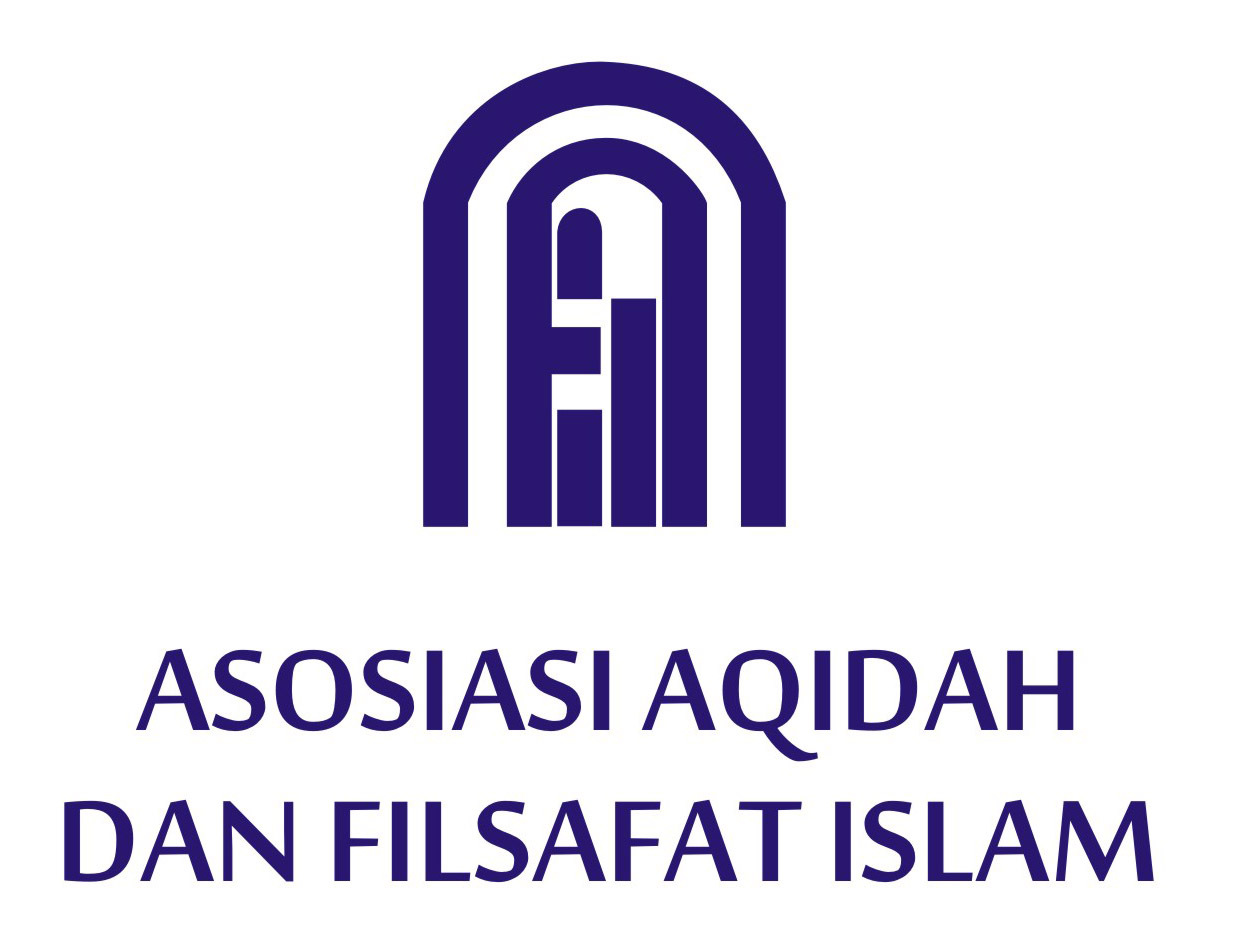Characteristics and Paradigm of Sufi Tafsīr in ‘Abid al-Jabiri Epistemology Perspective
Abstract
The result of Sufi’s interaction and the Holy Qur-an passes out with a distinctive style of Sufi’s Tafsir with its Irfan epistemology. Although the validity of the Sufi interpretations are still disputed by Scholars, it has in fact a thorough epistemological structure. As a result of the interpretations of the Qur-an with a peculiar epistemology, the Sufi interpretations also have the distinctive characteristics and paradigms as well.Amongst the characteristics of Sufi’stafsir is the use of Ta'wil method, interpreting the Qur'an based on the essence of Khafiyah within the process of Riyadah and being performed by the Sufism.The Result of Sufi’s Interpretation of the Holy Qur-an is divided into two categories.Firstly; Free Interpretation, meaning the result of the Sufi’s interpretation spread sporadically in numerous kinds of ingenuity and not codified in one book of interpretation.Secondly; the codified Interpretation, is the result of a codified Sufi’s interpretation and even written in an entire book of tafseer.Concurrently, the paradigm built by the Sufi’s tafsir is the existence of the meaning of zahir and batin in the verses of the holy Qur-an. everyone has a level of understanding in accordance with the habitation which he is located.Thus, The Sufi do not recognize the existence of the absolutism in Interpretations.
Keywords
Full Text:
PDFReferences
‘Afi>fi>, Abu> al-‘Ula> al-. fi> Tas}awauf al-Isla>m wa Ta>ri>khih. Iskandariyah: : Lajnah al-Ta’lif wa al-Tarjamah wa al-Nashr, t.th.
Al-Qat{t{an, Manna’. Maba>his f>i Ulu>m. Kairo: Maktabah Wahbah, 2000.
Chasbullah, Arif Chasbullah, dan Wahyudi Wahyudi. “Deradikalisasi Terhadap Penafsiran Ayat-Ayat Qital.” FIKRI: Jurnal Kajian Agama, Sosial dan Budaya, 2017
Alusy, Mahmud al-. Ru>h al-Ma’a>ni. Vol. I. Bairut: Dar Ihya’ al-Turath al-‘Araby, t.th.
Arabi, Muhammad bin Abd Allah ibn al-. Qa>nu>n al-Ta’wi>l. Bairut: Muassasah ‘Ulu>m al-Qur’an, 1986.
Ash-Shiddieqy, M. Hasbi. Sejarah Dan Pengantar Ilmu Al-Qur’an Dan Tafsir. Semarang: Pustaka Rizki Putra, 2000.
Ayyu>b, Hasan. al-Hadi>th fi> ‘Ulu>m al-Qur’a>n wa al-Hadi>th. Kairo: Da>r al-Sala>m, 2008.
Baghawi, Abu> Muhammad al-Husayn bin Mas’u>d al-. Ma’a>lim al-Tanzi>l fi> Tafsi>r al-Qur’a>n. Bairut: Da>r ‘Ihya>’ al-Tura>th al-‘Araby>, 1420.
baidan, Nasarudin. Wawasan Baru Ilmu Tafsir. Yogyakarta: Pustaka Pelajar, 2011.
Dhahabi, Muhammad Husayn al-. al-Tafsi>r wa al-Munfassiru>n. Vol. II. t.tp: Maktabah Mus}’ab ibn ‘Amr al-Islamiyah, 2004.
Ghaza>li>, Abu> Hamd al-. Qa>nu>n al-ta’wi>l. t.tp: t.p, 1992.
Hambal, Ahmad bin. Musnad Ahmad. Riyad: Bait al-Afkar al-Dauliyah, 1998.
Henry Corbin. History Of Islamic Philosophy. London: The Institute of Ismaili Studies, t.th.
Istambu>ly, Isma>il Haqqy al-. Ru>h} al-Bayan. Bairut: Dar Ihya’ al-Turath al-‘Araby, t.th.
‘Itr, Nur al-Di>n. Ulu>m al-Qur’a>n al-Kari>m. Damaskus: Mat}ba’ah al-S}aba>h, 1993.
Ja>biri>, Muhammad ‘Abid al-. Bunyah al-‘Aql al-‘Araby. Bairut: Markaz Dira>sa>t al-Wah}dah al-‘Arabiyyah, 2009.
Kala>ba>dhi, Abu Bakr Muhammad bin Isha>q al-. Kita>b al-Ta’arruf li> al-Madhab Ahl al-Tas}awwuf. Kairo: Maktabah al-Kha>nja, 1994.
Kathir, Ibn. Tafsir Al-Qur’a>n al-Az{i>m. Vol. II. Bairut: Da>r al-Kutu>b al-‘Ilmiyah, 1994.
Katsoff, Lois O. Pengantar Filsafat, terj. Sujono Soemargono. Yogyakarta: Tiara Wacana, 1992.
Khu>ly, Ami>n al-. Mana>hij al-Tajdi>d. Kairo: Da>r al-Ma’rifat, t.th.
Kurdi. Hermeneutika Al-Qur’an dan Hadis. Yogyakarta: el-Saq, 2011.
Lestari, Lenni. “EPISTEMOLOGI CORAK TAFSIR SUFISTIK.” SYAHADAH: Jurnal Ilmu Al-Qur’an & Keislaman 2, no. 1 (2016).
Manz}u>r, Ibn. Lisa>n al-Ara>b. XXI. Bairut: Da>r S}a>dr, t.th.
Maturidi, Abu> Mans{u>r al-. Ta’wi>la>t Ahl al-Sunnah. Vol. I. Bairut: Da>r Kutub al-Ilmiyah, 2005.
Morewedge, Parvis. Islamic Philosophy and Mysticism. New York: Caravan Books, 1981.
Musadad, Asep Nahrul. “Tafsir Sufistik dalam Tradisi Penafsiran Al-Qur’an (Sejarah Perkembangan dan Konstruksi Hermeneutis).” Farabi 12, no. 1 (2015): 106–123.
Mustaqim, Abdul. Dinamika Sejarah Tafsir al-Qur’an. Yogyakarta: Adab Press, 2014.
Nasution, Yasir. Cakrawala Tasawuf. Jakarta: Putra Grafika, 2007.
Qushairy, Abu> al-Qa>sim al-. al-Risa>lah al-Qushairiyah. Kairo: Da>r al-Sha’b, 1989.
Rippin, Andrew, ed. The Blackwell companion to the Qurʼan. Blackwell companions to religion. Malden, Mass: Blackwell Pub, 2006.
Riyanto, Waryani Fajar. “Antisinonimitas Tafsir Sufi Kontemporer.” Epistemé: Jurnal Pengembangan Ilmu Keislaman 9, no. 1 (2014): 139–154.
S}abuni, M. Ali al-. al-Tiby>an f>i Ulu>m al-Qur’an. Bairut: Alam al-Kutub, 1958.
Salus, Ali Ahmad al-. Ensiklopedi Sunnah-Syiah: Studi Perbandingan Aqidah & Tafsir. Jakarta: Pustaka al-Kautsar, 2001.
Sand, Cristin Zahra. Sufi Commentaries on The Qur’an in Classical Islam. Canada: Routledge, 2006.
Shihab, Quraish. Kaidah Tafsir. Tangerang: Lentara Hati, 2015.
Soleh, A. Khudori. “MENCERMATI EPISTEMOLOGI SUFI (IRFAN),” t.t.
Sulamy, Abu> Abd al-Rahman al-. Haqa>’iq al-Tafsi>r. Vol. I. Bairut: Da>r al-kutub al-‘Ilmiyah, 2001.
Syarifudin, M. Anwar. “Menimbang Otoritas Sufi Dalam Menafsirkan al-Qur’an.” Studi Agama dan Masyarakat I, no. 2 (Desember 2004).
Taqiyuddin Ahmad bin Taimiyah. al-Ikli>l fi> al-Muta>shabih wa al-Ta’wi>l. Iskandariayah: Dar al-Iman, t.th.
Tustari, Sah}l al-. Tafsir al-Qur’an al-Az}i>m. Kairo: Da>r al-Hir li> al-Turath, t.th.
Wahyudi. “Ta’wi>l Sufi al-Ghazali dan ibn ‘Arabi> Terhadap Ayat-Ayat al-Qur’an (Studi Komparatif).” Master’s Thesis, UIN Sunan Ampel Surabaya, 2017.
Zaid, Nasr Hamid Abu. Teks Otoritas Kebenaran. Yogyakarta: Lkis, 2012.
———. Tekstualitas Al-Qur’an : Kritik Terhadap Ulumul Qur’an. Yogyakarta: L-Kis, 2011.
Zarkashi, Badr al-Di>n al-. al-Burha>n fi> Ulu>m. Vol. I. Bairut: Da>r al-Kutub al-‘Ilmiyah, 2001.
Zarqa>ni, Muhammad ‘Abd ‘Az}im al-. Mana>h}il al-‘Irfan fi> ’Ulu>m al-Qur’an. Vol. II. Bairut: Dar al-Fikr, 1988.
DOI: http://dx.doi.org/10.24042/klm.v12i1.2152
Refbacks
Copyright (c) 2018 KALAM
KALAM [ISSN: 0853-9510, e-ISSN: 2540-7759] published by Faculty of Ushuluddin and Religious Study, Universitas Islam Negeri Raden Intan Lampung in collaboration with Asosiasi Aqidah dan Filsafat Islam (Islamic Theology and Philosophy Association)
Office: Faculty of Ushuluddin and Religious Study, Universitas Islam Negeri Raden Intan Lampung. Letkol H. Endro Suratmin Street, Sukarame, Bandar Lampung, Lampung, Indonesia, Postal code 34513. Website: http://ejournal.radenintan.ac.id/index.php/kalam, Email: kalam@radenintan.ac.id.
 This journal is licensed under a Creative Commons Attribution-ShareAlike 4.0 International License.
This journal is licensed under a Creative Commons Attribution-ShareAlike 4.0 International License.


